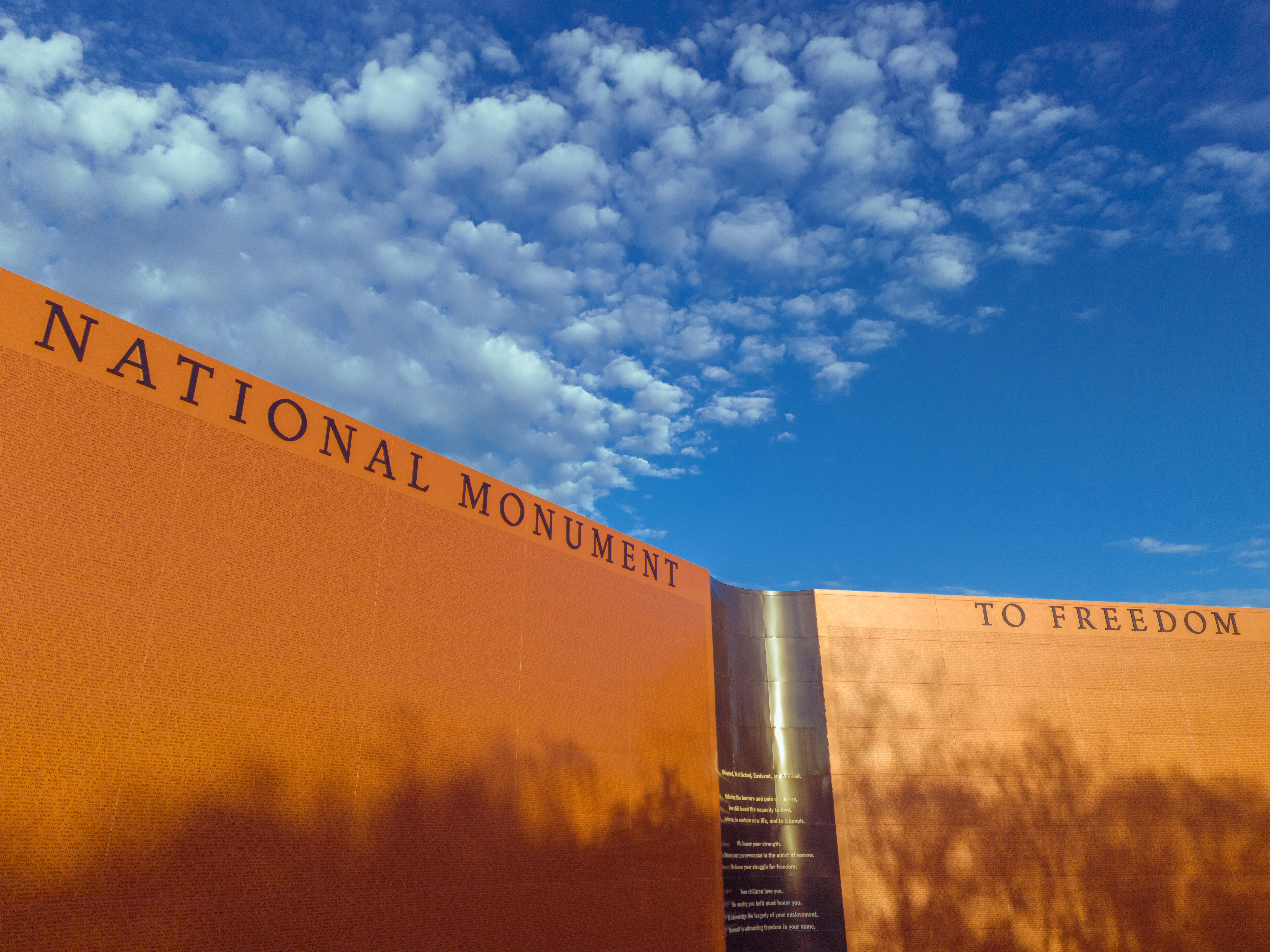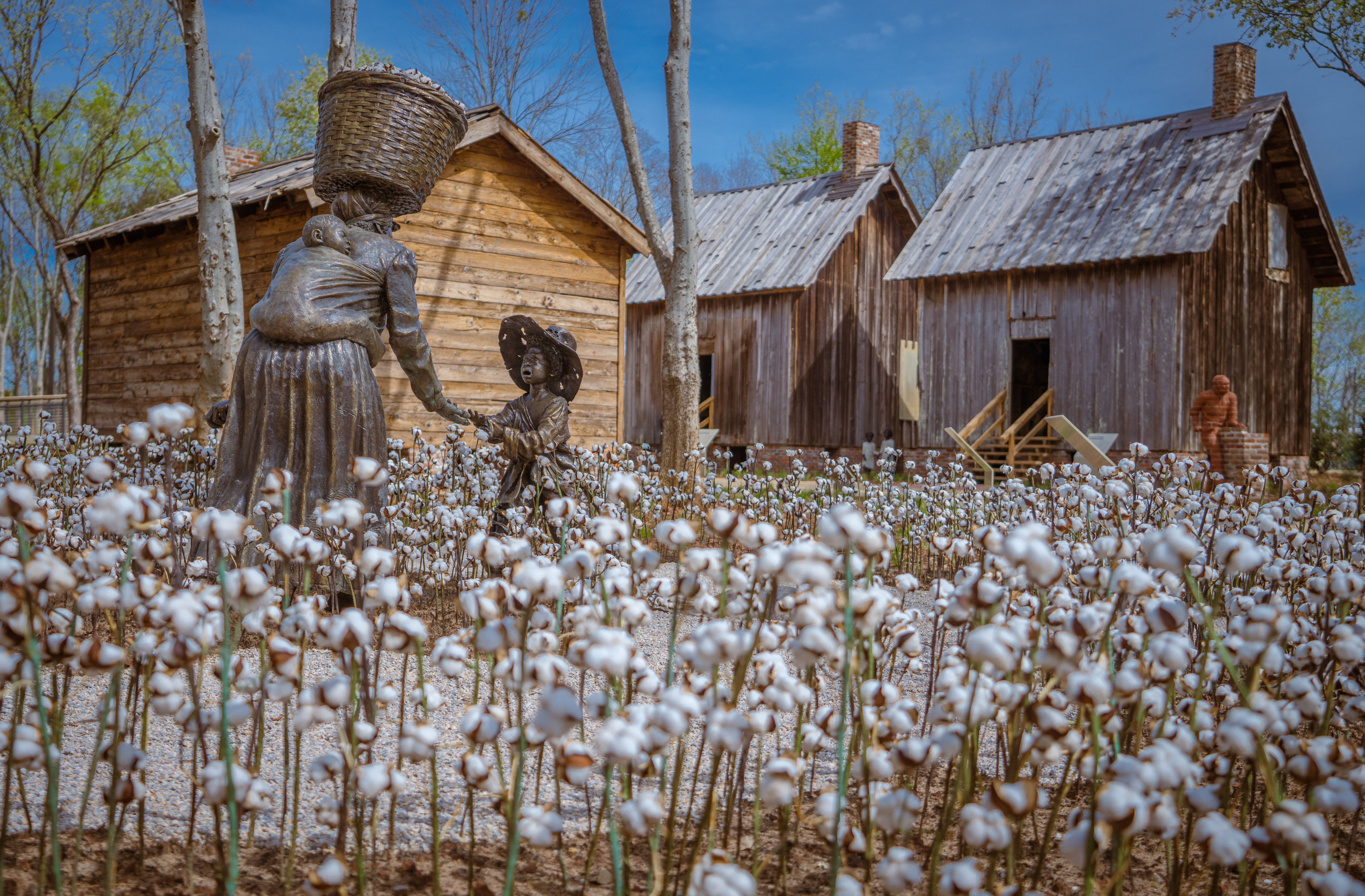National monument honoring enslaved Black people set to open in Alabama

A new monument and sculpture park honoring 10 million enslaved Black people in the United States is opening next week in Montgomery, Alabama.
Why it matters: The Freedom Monument Sculpture Park and National Monument to Freedom will become the closest the U.S. has to a national monument to the victims of enslavement.
- It comes as some states in recent years have passed bills limiting the discussion of slavery in public schools.
Zoom in: Advocacy group Equal Justice Initiative (EJI) announced the project — which will be part of its Legacy Sites — will open Wednesday after years of planning.
- The 17-acre site combines historical artifacts, contemporary art, original research, and first-person narratives to explore the institution of slavery, the lives of enslaved people, and the legacy of slavery in the U.S.
- The Freedom Monument Sculpture Park will have structures and totems, including 170-year-old dwellings from cotton plantations and bricks made by enslaved people 175 years ago.

The National Monument to Freedom, standing 43 feet tall and 155 feet long, sits at the end of the Sculpture Park.
- It uses research from the 1870 Census —the first time formerly enslaved Black people were able to formally record a surname —to list over 122,000 surnames that nearly five million Black people adopted at the time.
What they're saying: "I believe this will become a special place for millions of people who want to reckon with the history of slavery and honor the lives of people who endured tremendous hardship but still found ways to love in the midst of sorrow," EJI founder Bryan Stevenson said in a statement.
- "Many of us are the heirs to that extraordinary perseverance and hope. There is a lot to learn at this site and we want everyone to experience it."

Zoom out: Freedom Monument Sculpture Park and National Monument to Freedom will be part of EJI's Legacy Sites, which currently include The Legacy Museum: From Enslavement to Mass Incarceration and the National Memorial for Peace and Justice in Montgomery.
- The Legacy Museum — located on a site where enslaved people once were sold — features holograms, interactive videos and artifacts connected to the history of enslavement and mass incarceration.
- The nearby National Memorial for Peace and Justice memorializes the thousands of Black people killed in lynchings.
Context: The new site at the Alabama River is the place where tens of thousands of enslaved Black people were trafficked by boat and rail.
- The Alabama River also passes under the Edmund Pettus Bridge in Selma, Alabama. The bridge was the site of the March 7, 1965, violent attack by police on peaceful voting rights marchers known as "Bloody Sunday."
Between the lines: New museums dedicated to Black history have recently opened in Washington, DC, and South Carolina.
- Those museums cover the story of enslavement but also civil rights and art.
- Other countries have opened museums or erected memorials to enslavement. The International Slavery Museum operates out of Liverpool, England. Lagos, Portugal, has a small museum confronting the international slave trade as the spot where it began.